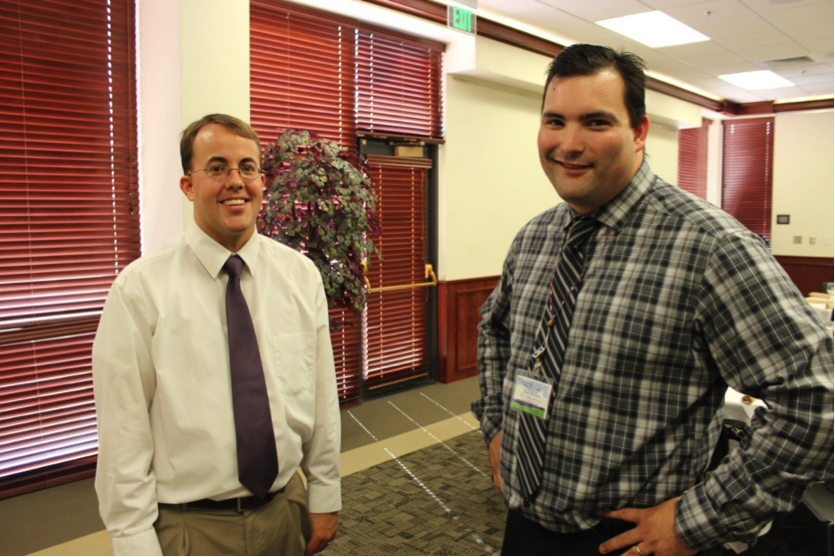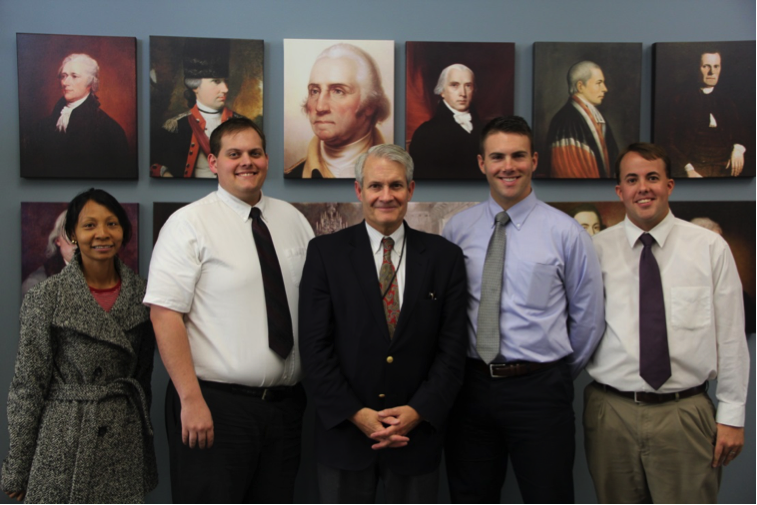
My association with Women of the Mountains conference (WOMC) began a few years ago when I took a class from Professor Baktybek Abdrisaev POLS2250 “Globalization and Sustainable Mountain Development.” As part of this class we were responsible for writing a research paper dealing with sustainable mountain development. I wrote a paper titled “Sustainable Mountain Development: State Rights vs. Federal Rights,” which was included in the first volume of the journal “Youth and the Mountains,” published by the History and Political Science Department of Utah Valley University in 2013 (See: https://www.uvu.edu/hps/docs/bound_book.pdf ). Such a paper opened my eyes to not only the issues that the state of Utah was facing, but issues of other nations and peoples as well.
Sadly, I took this class my final semester at Utah Valley University (UVU) and I was then off to graduate school. During this time while I was not a part of the WOMC organization I continued to learn about the issues facing others, especially those in developing, mountainous nations. In addition, I had multiple opportunities to improve my writing skills. This would serve me well, for soon after I graduated from the University of Utah with a Masters in International Affairs and Global Enterprise I began working at the Center for Constitutional Studies at UVU.
It was here that I was able to once more get involved in the WOMC organization when I agreed to join student organizing committee led by the Utah International Mountain Forum (UIMF), a coalition of student clubs at UVU. My primary duties were helping to secure funding for the upcoming event by writing proposals for a number of grants. This experience was new to me. I have written countless papers, but none such like this. It was a great opportunity to be taught and learn a new skill in applying for grants and learning how that system works.

(L to R ) I am with Tony Medina, VP for Logistics and Protocol during the WOMC
Through writing the grants I was able to see the importance of the WOMC organization in a light I had not known before; as grass-roots forum, focused on the promotion of the United Nations gender and sustainable mountain development agendas, gathered by UVU students, faculty and local communities in the State of Utah with support from many like-minded institutions in the Rocky Mountain region. I was able to see and present to the committees handling grants about the role the WOMC plays not only in the international community, but in our local community as well. That the faces and languages may vary, but the issues that most face are the same.
It was a great opportunity and my activities were part of the joint efforts of several students at organizing committee who focused on raising funds for the conference, including Jenny Starley, who was responsible for media and fundraising and Kamaile Harris, who was able successfully organize silent auction at Salt Lake City to raise funds benefiting the conference.
My task was to look for funds which will allow WOMC to cover trips for six women-entrepreneurs from different mountain nations (two from Africa, two from Asia and two from Latin America) and I approached primarily funding institutions in the state of Utah and at UVU as well. I know that my other colleagues applied for several grants before but experienced some setbacks….Still we remember famous saying of Winston Churchill “Success is stumbling from failure to failure with no loss of enthusiasm.” I was full of enthusiasm to try again, prepared grant proposals and submitted to GEL Seed Grant, which is handled by the Office of Engaged Learning at UVU and ELLA Grant which is handled by College of Humanities and Social Sciences at UVU.
While our proposal for GEL Seed Grant was rejected, I am grateful that my efforts in writing the ELLA grant were able to help fund such a great event, when UVU students hosted for the first time major international conference under the umbrella of the United Nations-affiliated Mountain Partnership. I was glad that ELLA committee recognized all hard work done by UVU students and made the following decision: “The ELLA committee finds that support for this project is warranted due to the important experience the student participants gain in planning the Women of the Mountains Conference (WOMC) and contributing to developing a protocol for future meetings of the conference, one which serves an important academic community with a humanitarian mission and in which UVU plays an increasingly important role internationally. The money requested is to pay the expense of bringing one of six women entrepreneur participants to the conference. Given that the…. conference planning has generated a significant portion of its funding from a variety of sources far exceeding what is requested, and given that the student participants’ efforts in planning the conference would be diminished by losing one of the conference luminaries, the committee recommends funding of the full amount requested.”
As part of my responsibility I also helped to organize the presentation from Pauline Zvonkovic, Senior Management Analyst at United States Department of Housing and Urban Development. She made two special presentations about writing grants and shared her experiences in helping fund various projects and initiatives for local communities in the number of states of the Rocky Mountains region.

Judge Griffith ( C ) with UVU Students at the Center for Constitutional Studies.
In addition to writing grants I was also able to act as liaison between the Center for Constitutional Studies and the WOMC organization. WOMC invited Susan Griffith, wife of Judge Griffith, federal judge on the United States Court of Appeals for the District of Columbia Circuit, to make a keynote presentation about her life and ability to balance family, own role as mother and grandmother with official duties of being a wife of a high level official of the United States. Knowing that Susan Griffith will be accompanied by her husband during the WOMC, I helped to organize at the Center for Constitutional Studies at UVU a sit down with Judge Griffith and his wife Susan Griffith. The meeting served as an opportunity for the UVU students, who received special scholarship named as Wood Assistants to not only learn more about Constitutional law and the appellate process but a look at what takes place behind the closed doors of the judicial system. Judge Griffith spoke of the desire for that the Washington, DC appellate court has to not become partisan, but the need to stay focused on what the law is and not what public opinion wants. In how this is necessary for a judicial system to remain relevant and useful in a free society. In addition, Judge Griffith shared some practical experiences and recommendations with students and was very open and candid about the amount of time and research an appellate court judge must do for each case and the necessity of having a united court rather than a divided court.
Along with the insights of the judicial system we were also treated to hearing from him and his wife Susan on the struggles and benefits of raising a family when one spouse has such a demanding and stressful career. Their insights showed that it takes a team to be successful in life and that in a family each member are equally important to the success of that family.
This Conference was such a great success because of the amazing work done by so many students who were able to work as one strong and united team. It also gave me the opportunity to work closely with my wife, Molly Hone, who has such a passion for the topics that where discussed during this conference. This conference showed me that there is still much that needs to be done in order to continue to improve the lives of others, but that by working together we can make it happen.
Thomas Hone, member of the organizing Committee, 2015 WOMC

